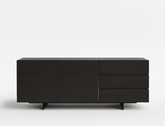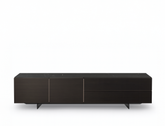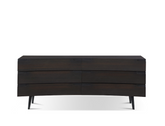Which Mattress Is Right Firm or Plush

Choosing the perfect mattress is a significant decision that can influence your sleep quality and overall well-being. Among the various types available, two popular options that people often find themselves torn between are firm and plush mattresses. Each type has its unique set of characteristics, benefits, and drawbacks. Understanding the differences between firm and plush mattresses can help you make an informed decision based on your preferences, sleep habits, and comfort needs. In this detailed discussion, we'll explore the distinct features of both mattress types to help you determine which one is better suited to give you a restful night's sleep.
What is a Firm Mattress?
A firm mattress offers a strong, flat, and less yielding surface. If you're someone who enjoys sleeping with minimal sinkage, a firm mattress might be more up your alley. Here’s a breakdown of its primary characteristics:
Stability and Support
Firm mattresses are constructed to provide a stable and supportive sleeping surface. They help keep your spine in a neutral position, particularly beneficial for those who sleep on their backs or stomachs. The firmness aids in distributing body weight evenly, which can alleviate pressure on the lower back and hips, preventing or reducing back pain.
Durability
One of the standout qualities of firm mattresses is their durability. They tend to have a longer lifespan than softer mattresses because they experience less sagging. Their dense construction helps maintain their shape over time, making them a great investment for long-term use.
Cooling Properties
Many firm mattresses are designed with materials that enhance airflow, helping regulate temperature. Hot sleepers often find firm mattresses to be cooler than their plush counterparts, as they do not allow the body to sink into the materials, reducing heat retention.
Allergy Benefits
The dense construction of firm mattresses makes them less prone to harboring dust mites and allergens. This characteristic is a plus for individuals who suffer from allergies or respiratory problems, as a firm mattress can contribute to a cleaner sleeping environment.
What is a Plush Mattress?
If you're someone who craves a softer, cushioned sleep experience, a plush mattress might be the ideal option for you. Plush mattresses are known for their soft, comforting feel, offering a cozy surface that conforms to your body shape. Here’s what you need to know about plush mattresses:
Softness and Comfort
Plush mattresses provide a welcoming and cushioned surface. These mattresses often feature a pillow-top layer that adds to their luxurious feel, making them an excellent choice for side sleepers. This softness allows the body to sink into the mattress, contouring around the natural curves and providing immediate comfort.
Pressure Relief
One of the primary benefits of plush mattresses is their ability to relieve pressure points. The soft surface cushions sensitive areas such as the shoulders and hips, which is particularly beneficial for people suffering from joint pain or arthritis.
Conforming Support
Despite their softness, plush mattresses do offer a balance between comfort and support. They conform to the body's shape without sacrificing the necessary support for your spine. This quality makes them a popular choice for those looking for a soft surface with adequate spinal support.
Motion Isolation
Plush mattresses generally excel at isolating motion, making them ideal for couples. Movements from one side of the bed are less likely to be felt by the other person, allowing both partners to sleep undisturbed.
Firm vs. Plush Mattress: Key Differences
Support vs. Comfort
The most significant difference between firm and plush mattresses is the balance between support and comfort. Firm mattresses prioritize support, especially for those who need spinal alignment. In contrast, plush mattresses focus on comfort and pressure relief, making them more suitable for people who enjoy a softer sleep surface.
Sleeping Position
Your preferred sleeping position plays a crucial role in deciding whether a firm or plush mattress is better for you. Firm mattresses are typically recommended for back and stomach sleepers, as they provide the necessary support to keep the spine in alignment. On the other hand, side sleepers often find plush mattresses more comfortable, as they cushion the pressure points on the shoulders and hips.
Health Considerations
For individuals with chronic back pain or orthopedic conditions, firm mattresses may offer the support they need to alleviate discomfort. Plush mattresses, however, are ideal for those dealing with joint pain, as their soft surface provides pressure relief.
Temperature Control
Firm mattresses often have better temperature regulation features, making them cooler options for those who tend to sleep hot. Plush mattresses, while incredibly comfortable, may retain more heat due to the soft, cushioning materials, potentially making them less suitable for hot sleepers unless designed with cooling technology.
How to Choose Between a Firm and Plush Mattress
Body Type and Weight
Your body type and weight are important factors in determining the right mattress. Heavier individuals often prefer firm mattresses because they provide better support and prevent sinking too deeply. On the other hand, lighter individuals may find plush mattresses more comfortable, as they can experience more cushioning without sinking too far into the mattress.
Sleeping Position
Your sleeping position should be a primary consideration when choosing between firm and plush mattresses. Back sleepers typically need a firm mattress to maintain spinal alignment, while side sleepers benefit from the softness of a plush mattress to alleviate pressure points. Stomach sleepers usually prefer a firmer surface, as a soft mattress can cause the spine to arch unnaturally, leading to discomfort.
Health Concerns
Those with specific health concerns such as back pain may find firmer mattresses more suitable, as they provide the support needed to relieve pressure on the spine. Conversely, plush mattresses are ideal for those who need pressure relief on joints and sensitive areas, such as the hips and shoulders.
Personal Preferences
At the end of the day, personal preference plays a huge role in your mattress choice. Consider the materials, comfort features, and budget when making your decision. If you're unsure, many mattress companies offer sleep trials, allowing you to test the mattress in your own home before making a final commitment.
Benefits and Drawbacks of Firm Mattresses
Benefits
- Spinal Alignment: Firm mattresses offer excellent support for proper spinal alignment, helping to alleviate back pain.
- Durability: Their strong construction ensures that firm mattresses last longer, resisting sagging and indentations over time.
- Allergy Resistance: The dense surface of firm mattresses makes them less prone to harboring dust mites and allergens.
Drawbacks
- Limited Pressure Relief: Firm mattresses may not provide adequate cushioning for sensitive pressure points, especially for side sleepers.
- Less Conforming: Firm mattresses do not conform as closely to the body as plush mattresses, which could reduce overall comfort for some individuals.
Benefits and Drawbacks of Plush Mattresses
Benefits
- Pressure Relief: Plush mattresses excel in cushioning pressure points, making them ideal for individuals with joint pain or side sleepers.
- Comfort: Their soft surface provides a cozy and comforting sleep experience.
- Motion Isolation: Plush mattresses are great for couples, as they effectively isolate motion and reduce partner disturbance.
Drawbacks
- Lack of Support: Some individuals may find that plush mattresses do not offer enough support, particularly those with back issues.
- Durability: Plush mattresses are more prone to sagging and may have a shorter lifespan than firmer mattresses.
- Heat Retention: Plush mattresses, especially those with memory foam, can retain heat, making them uncomfortable for hot sleepers.
FAQs
What is the main difference between firm and plush mattresses? The primary difference between firm and plush mattresses lies in their level of support and comfort. Firm mattresses provide a flat, solid surface that offers strong support, while plush mattresses are soft and cushiony, offering more comfort and contouring.
Are firm mattresses better for back pain? Yes, firm mattresses are often recommended for individuals with back pain because they provide the necessary support to keep the spine properly aligned, which can help alleviate discomfort.
Do plush mattresses last as long as firm mattresses? Typically, firm mattresses have a longer lifespan than plush ones. The soft materials in plush mattresses are more prone to sagging and wear over time.
Can plush mattresses support couples well? Yes, plush mattresses are excellent for couples, especially because of their motion isolation features. Movements on one side of the bed are less likely to disturb a partner on the other side.
Do firm mattresses sleep cooler than plush mattresses? Yes, firm mattresses tend to sleep cooler because they allow less sinkage, which improves airflow and reduces heat retention.
Final Thoughts on Firm vs. Plush Mattresses
When it comes to choosing between a firm and plush mattress, the decision should be based on your individual sleep preferences, body type, and any specific health concerns. Firm mattresses provide excellent support and longevity, while plush mattresses offer superior comfort and pressure relief. Ultimately, your comfort and the quality of your sleep should be the deciding factors. By carefully considering your options and perhaps testing out different mattresses through sleep trials, you can find the mattress that best suits your needs for restful, rejuvenating sleep.







